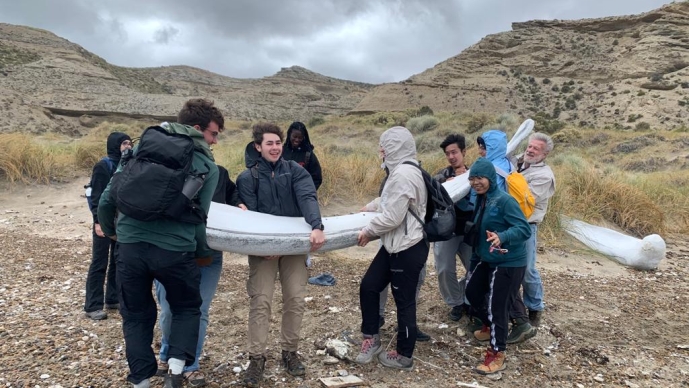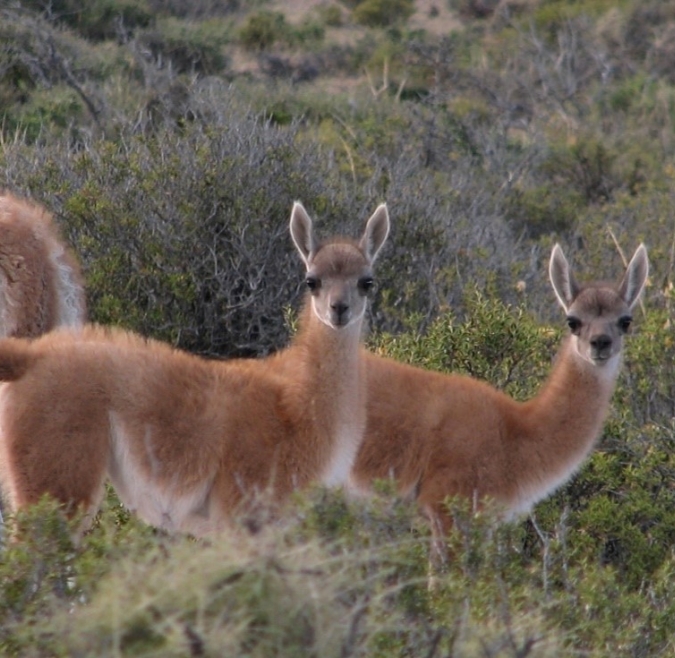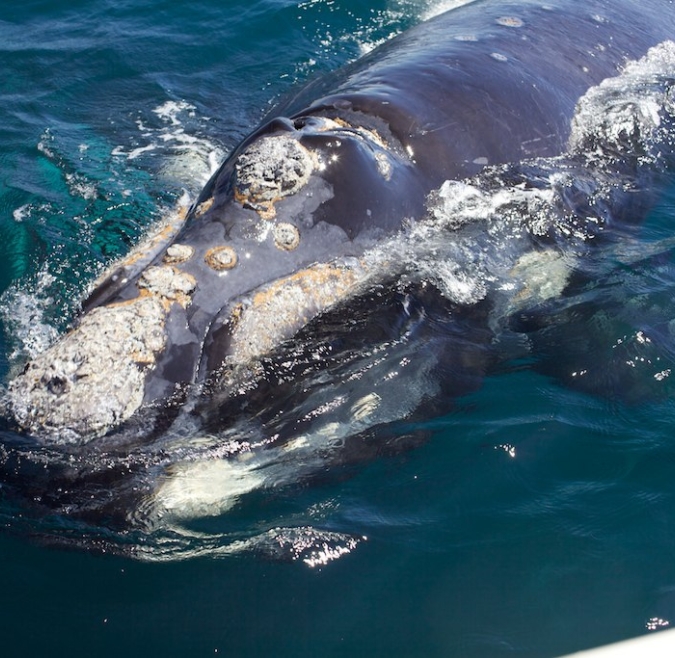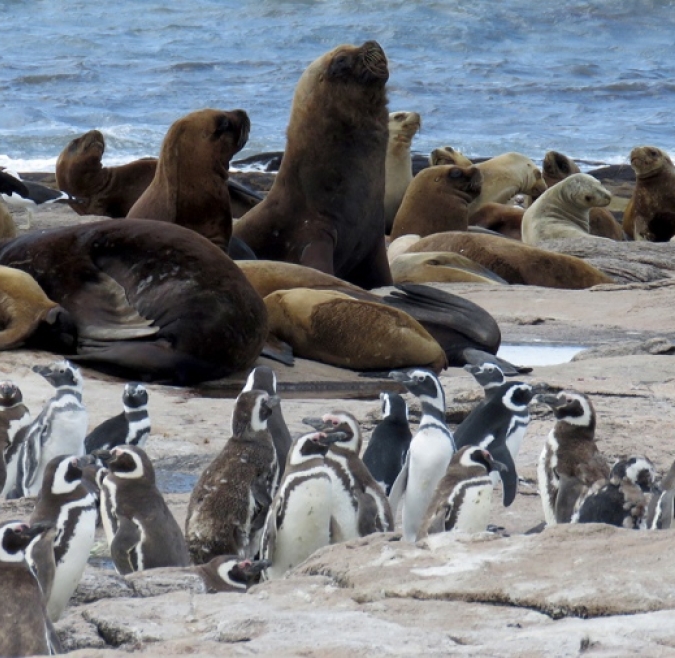Winter: Rutgers- An Exploration of Biodiversity, Natural History, and Conservation of Patagonia
The Program
Join this once-in-a-lifetime learning experience within the extraordinary setting of Coastal Patagonia. Conduct censuses of sea lions and penguins, excavate fossils, track a puma family, snorkel in tidepools, and observe elephant seals and orcas!
Update: This program has reached capacity and is no longer accepting applications for Winter 2025
This course will help students develop scientific skills by combining theoretical concepts with experiential field learning. Students will learn the geological, biological, and ecological characteristics of coastal Patagonia and the adjacent steppe biome, as well as the current conservation challenges and programs being implemented. It is hoped it will inspire admiration for the natural world and strengthen the importance of conservation of biological diversity and natural habitats.
At the core of this course is the fieldwork, where students will engage in full-day field activities in a variety of habitats and ecosystems. Activities will include surveying intertidal communities and learning the oceanographic and ecological processes behind their formation; learning wildlife management and monitoring techniques, such as the use of camera traps and analysis of tracks to study pumas and other wildlife; conducting paleontological surveys of Miocene marine deposits, learning fossil identification and interpretation of paleo ecosystems; closely observing the endemic steppe’s fauna, including guanacos, rheas, reptiles and a variety of aves, and learning about their behavior, ecology, and conservation.

Program Locations

Argentina
Wildlife Refuge "La Esperanza"
Located about 75 km north of Puerto Madryn, "La Esperanza" encompasses an area of 6,700 ha, including 12 km of San Matías Gulf coast, and is strategically located in the buffer zone of Península Valdés. The refuge, managed by Fundación Patagonia Natural (http://www.patagonianatural.org), conserves the biodiversity and habitats that represent the coastal Patagonian steppe, conducting scientific research and educational activities. Over 80 species of vertebrates have been surveyed, including rheas, guanacos, and a sea lion colony. Near the coastal zone, archaeological sites of the Tehueches culture can be found, and further inland, the Miocene-age paleocliffs and canyons containing rich fossil assemblages of marine invertebrates.

Argentina
Península Valdés
Peninsula Valdez, a UNESCO Natural World Heritage Site, is situated in the Chubut Province. It is separated from the continent by a narrow isthmus, which gives its characteristics of a continental island. Its coastal zone possesses extensive rocky cliffs of up to 100 m in height, deeply carved canyons containing fossil-rich Tertiary marine deposits, shallow bays, and extensive mudflats. This is an area of global significance for the conservation of marine mammals, for the unique biodiversity that inhabits its desert plains, and for the diverse marine fauna along its coastline, including important breeding populations of southern right whale, southern elephant seals, penguins, and variety of bird species. The wetlands provide significant nesting and resting sites for numerous migratory shorebirds.

Argentina
Islotes Lobos National Park
This newly created National Park is located about 90 km North of “La Esperanza” wildlife refuge. The park’s nutrient-rich ocean waters sustain a highly diverse ecosystem. It is home to the northernmost Magellanic penguin breeding colony, a reproductive colony of sea lions, and several species of coastal birds. The terrestrial fauna includes guanacos, foxes, and reptiles. This area is an important resting place for migratory birds (e.g., red knots) during their long migration between the northern and southern hemispheres. Over 60 species (20 families) of birds have been recorded, including gulls, knots, plovers, oystercatchers, herons, as well as falcons, rheas, and flamingos.
Academics
The program An Exploration of Biodiversity, Natural History, and Conservation of Patagonia covers fundamental concepts and processes that explain the origin, patterns, and evolution of biological diversity in Patagonia and describe the current threats to biodiversity by anthropocentric activities. The core of this course is a 10-day field trip to Patagonia (Southern Argentina).
This 3-credit course is open to all students, undergraduate and graduate, with a general interest in biodiversity and nature exploration; students with a strong interest in fields such as ecology, animal behavior, marine biology, paleontology, zoology, and wildlife conservation, will particularly benefit of this field experience.
This course involves four pre-travel meetings and two post-travel meetings. In addition to the activities listed in the planned activities section, students will keep a daily log and will take field notes and photographic documentation during each field activity. Upon return from the trip, students will write a summary of their activities, and describe their experiences from both an academic and personal point of view.
The fieldwork portion of this program includes six days at the wildlife refuge "La Esperanza" (http://www.patagonianatural.org), located in the Province of Chubut, about 75 km north of the city of Puerto Madryn. During our stay at the wildlife refuge, we will travel to the newly created Islotes Lobos National Park. Then, we will travel to Puerto Pirámides (Península Valdés) for three days of field activities. For more details, see course description and syllabus.
See pictures from winter 2025 and details for 2026
Feel free to email the professor, Dr. Vagelli, if you have questions about the course academics, out-of-pocket costs, travel itinerary, etc... You can email him at avagelli@camden.rutgers.edu
Read this article about Professor Vagelli's courses https://camden.rutgers.edu/news/professors-passion-biology-inspires-once-lifetime-courses
Housing and Meals
Housing and meals: Housing and meals are included in the program fee. At the wildlife refuge housing is shared in triple/quad rooms by gender, with each student having their own twin/ bunk bed. Students will share doble/triple rooms in the hotel/ lodge in Buenos Aires and Puerto Pirámides. Meals include breakfast and dinner. Packed lunches and water will be provided for the fieldwork. Vegetarian options can be arranged.
Financial Information
Program Costs
| NJ Resident | non-NJ Resident | |
|---|---|---|
| Undergraduate | $3,440 | $3,900 |
Program Cost includes:
- Tuition
- Housing
- In-country flight
- Most meals
- Excursions
- Administrative Fees
- Emergency Medical Access Abroad
Out-of-Pocket Costs
| Airfare | $1,600 |
| Meals | $40 |
| Personal Expenses | $100 |
| Total | $1,740.00 |
Out-of-Pocket Cost includes:
The above costs are estimations and represent the known out-of-pocket costs students encounter during their time abroad.
Some of these expenses will be paid for prior to going abroad, such as an airline ticket, while some of these expenses, such as meals and personal expenses, will be paid in-country as part of your daily expenses. As you plan, you will need to budget these costs and spend wisely throughout your time abroad.
